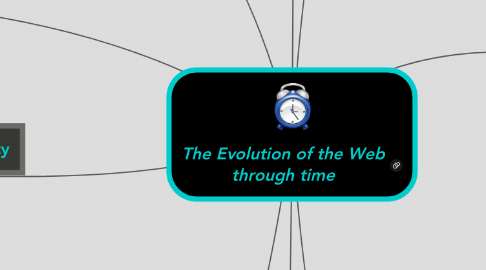
1. Focus on the knowledge we produce
2. From a real to a virtual world
2.1. Tools
2.1.1. Video games
2.1.2. Wikis
2.1.3. Blogs
2.2. New abilities
3. 4) Web 2.0
3.1. Creators - prosumers
3.2. Virtual community
3.2.1. Interaction
3.2.1.1. Social Networks
3.3. Active learning
3.3.1. Collaborative and cooperative learning
3.3.2. Multitask students
3.3.2.1. Millenials
3.3.2.1.1. Digital natives
3.4. Cultural shift
3.4.1. From the institution to the individual
4. 6) Technology and Education
4.1. CHANGES
4.1.1. Virtual revolution
4.1.1.1. Changing the way we think
4.1.1.2. Changing how we communicate
4.1.2. Gap between students and schools
4.1.3. Adaptation to new learners
4.1.3.1. Needs and interests
4.1.4. New methods
4.1.4.1. Tandem learning
4.1.4.2. Flipped class
5. 5) Network Society
5.1. THE SPACE OF FLOWS
5.1.1. CULTURE
5.1.1.1. Religion - Cultural upbringing - Political organizations
5.1.2. SOCIETY
5.1.2.1. Social Networks
5.1.2.1.1. Physical Communities
5.1.2.1.2. Virtual Communities
5.1.3. ECONOMY
5.1.3.1. LEARN TO LEARN SKILL
5.1.3.1.1. Education should provide Ss with the tools to develope this skill.
5.1.3.2. LABOUR RELATIONSHIPS
5.1.3.2.1. Flexibility
5.2. A society whose social structure is constructed around electronically powered information communication networks. (Castells)
6. Link to the activities and group discussions:
7. 2) Web 1.0
7.1. Consumers
7.2. Passive learning
7.3. No interaction/collaboration
8. 3) Knowledge Society
8.1. Create - Share
8.2. Knowledge = prosperity of culture
8.3. Necessary skills (Mark Warschauer)
8.4. From 'information' to 'knowledge' (Andy Hargreaves)
8.4.1. Maximize learning
8.4.2. Stimulate ingenuity and invention
8.4.3. Develop capacity to cope with change
8.5. Understand and transfer information
8.6. Digital Natives/Immigrants (Marc Prensky) vs. Residents/Visitors (David White)
9. 1) 1990s
9.1. WWW
9.1.1. Hypertext
9.1.1.1. Browse
9.2. Information Society
9.2.1. Mark Warschauer
9.3. Digital Immigrants (Marc Prensky)
9.3.1. Not born in a difital world
9.3.2. Specific tasks
